November 20, 2025 | 04:22 GMT +7
November 20, 2025 | 04:22 GMT +7
Hotline: 0913.378.918
November 20, 2025 | 04:22 GMT +7
Hotline: 0913.378.918
After 10 years of research, Vinasoy Soybean Applied Research Center (VSAC) has introduced a pilot planting and evaluation of 1,533 precious soybean genetic resources at the Central Highlands Soybean Testing Station (CHSTS).
This is a round to evaluate the entire group of existing soybean genes to be used as hybriding materials with the aim to develop new soybean varieties with high nutritional quality and yield, suitable for raw material areas nationwide and for the production of soy milk at Vinasoy's 3 factories across the country.
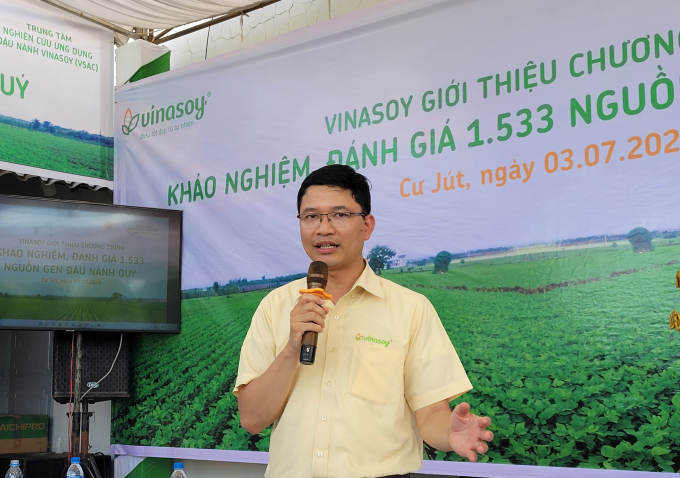
Mr. Le Hoang Duy, Deputy Director of VSAC.
Mr. Le Hoang Duy, Deputy Director of VSAC, said that the soybean gene bank is a great achievement of VSAC after many years of collecting and researching soybean lines/varieties in the country and abroad, from wild soybean lines/varieties to those with specific characteristics such as high yield, high protein, anti-pest capacity, salt and alum resistance, etc.
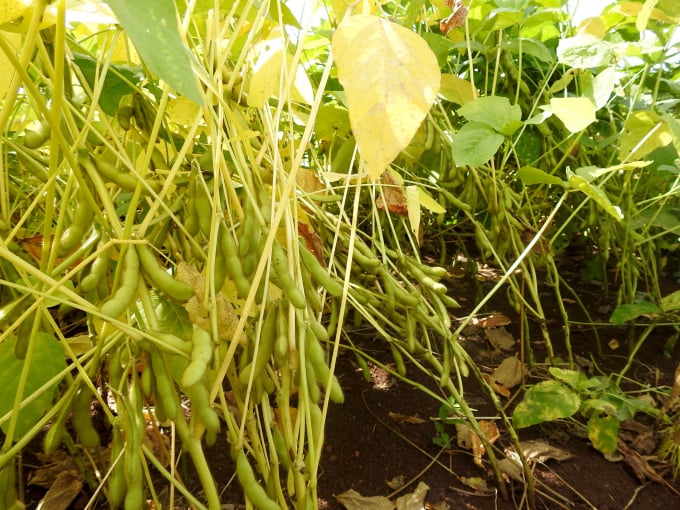
Some soybean genes at the Central Highlands Soybean Testing Station.
Vinasoy preserves these precious genes in optimal conditions to ensure the seed quality maintenance for a long time. At the same time, it is currently applying molecular genetic technology (molecular biological indicators) in selecting and creating breeds, so the identification of good hybrids is done very quickly, accurately and without much waiting time for results.
Vinasoy chose Cu Jut district, Dak Nong province to set up the CHSTS because with the advantage of climate and soil there, Cu Jut can grow soybean in 4 seasons a year. This helps the pilot planting and evaluation more convenient and faster, shortening half the time compared to the traditional method, even faster than some famous research centers in the world such as those in Costa Rica and Central America.
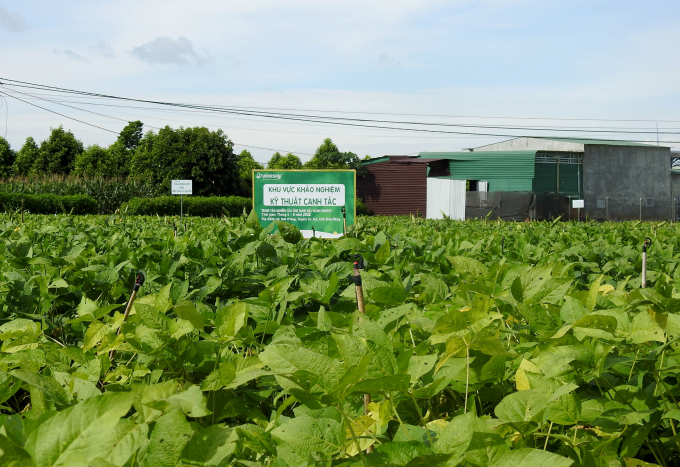
The Central Highlands Soybean Testing Station will be a place for research, selection, and creation new breeds for Vinasoy's raw material areas.
The station will be the place to conduct research, select and create breeds, and test cultivation techniques to develop new varieties for Vinasoy's raw material areas throughout the country.
With these two factors, Vinasoy has shortened the time to select new varieties and develop the good ones into only 4-5 years (compared to an average time of 10 years in famous soybean-supplying countries such as Canada and the US).
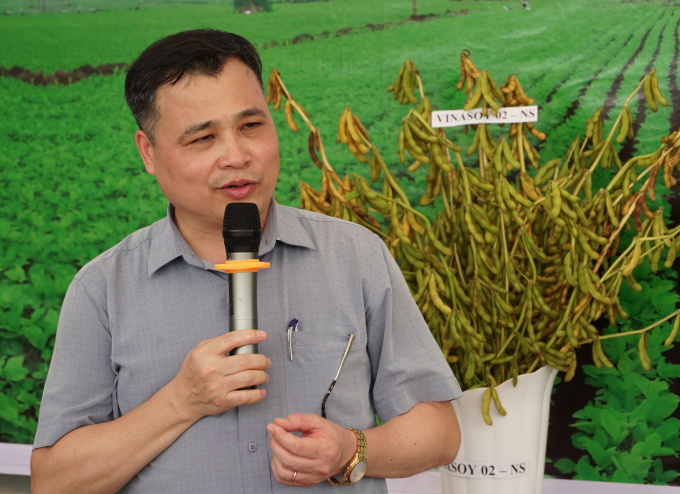
Mr. Dinh Cong Chinh, Deputy Head of Foodstuff Plants Division, Department of Crop Production.
Mr. Dinh Cong Chinh, Deputy Head of Foodstuff Plants Division, Department of Crop Production, highly appreciated Vinasoy's efforts in research, selection, and breeding to form soybean material areas. With more than 1,500 precious genes that Vinasoy has collected, the ability to create soybean varieties with good yield, high quality, and valuable agronomical characteristics is very high.
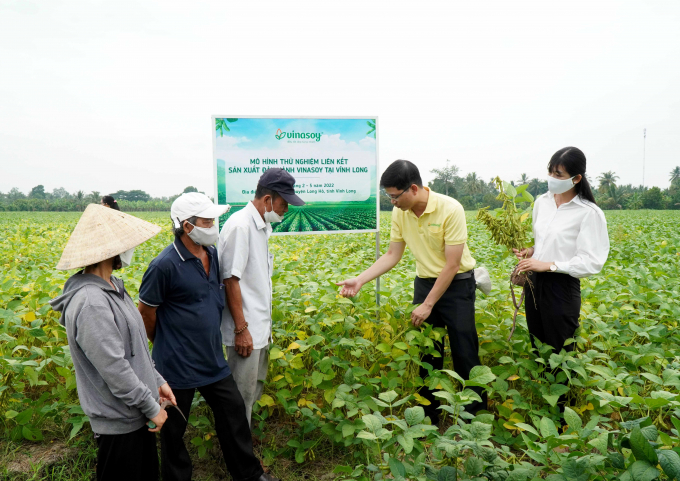
A Vinasoy's soybean material area in Vinh Long.
Up to now, Vinasoy has developed 4 raw material areas in the country including the Central, Mekong River Delta, Red River Delta and Central Highlands, with a potential area of up to 9,000ha.
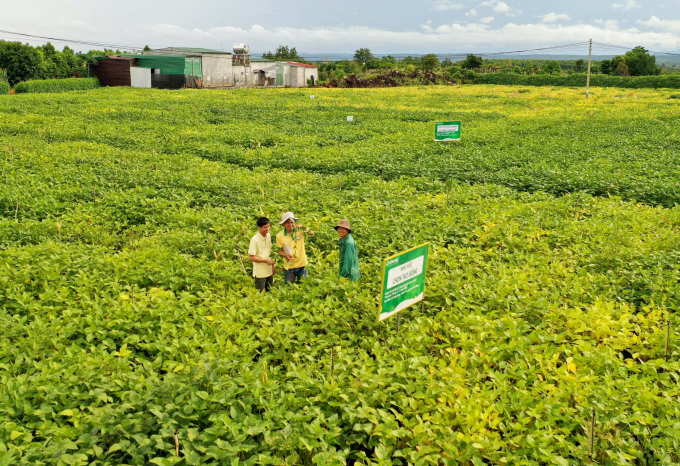
1,533 soybean genetic resources were tested and evaluated at the Central Highlands Soybean Testing Station of Vinasoy.
Translated by Linh Nguyen
/2025/11/19/4141-2-132831_216.jpg)
(VAN) One of Japfa's outstanding solutions is implementing digital transformation and artificial intelligence (AI) to optimize operations, enhance productivity, and advance sustainable development.
/2025/11/19/4847-1-093540_448.jpg)
(VAN) The Gia Lai Provincial People’s Committee had a working session with the delegation of the U.S. Department of Agriculture, the State of Idaho, and representatives of the State's leading enterprises.

(VAN) Ca Mau has a sufficient foundation to become a strong regional aquaculture center, where production integrates the economy, the environment, and the lives of the people.

(VAN) SEIKI Group envisions itself as a pioneer in the ‘dual transformation’ of digital technology and green industry, standing alongside the Government and Vietnamese businesses in their pursuit of sustainable development.

(VAN) The VNGEONET network affirms Viet Nam's progress in mastering digital space, providing a precise positioning data platform to serve socioeconomic development.
/2025/11/14/3247-1-184556_35.jpg)
(VAN) Thai Nguyen is methodically implementing digital transformation in the livestock sector, laying the foundation for a modern, transparent, and sustainable agriculture.

(VAN) The year 2025 marks 80 years of development of the Agriculture and Environment sector, a proud journey with significant progress in production, integration and sustainable growth.